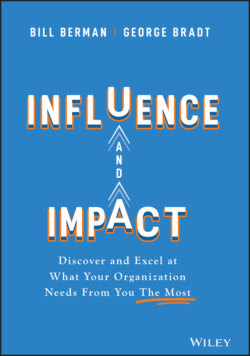Читать книгу Influence and Impact - George B. Bradt - Страница 13
Doing What Is Easier
ОглавлениеOne of the most common causes of losing influence and impact is when you find yourself doing your direct reports’ jobs instead of your own. You feel pressured and stressed and find it more comfortable to do work yourself than to give it to someone who works for you. There are a number of reasons, all of them valid to some degree:
“It's faster for me to do it.”
“I don't want to overburden my people. I'll take it on.”
“They aren't skilled, and I don't have the time to teach or coach them.”
“It has to be done just right, and I don't have people who can do it as well as I can.”
Each one of these feels right and may be true in the short run. But at some point, your people start to feel that they aren't growing, and feel their value is eroding just as yours is.
Tommy was known for having a blend of technological, operational, and business expertise that helped him rise to become the leader of a 1500-person business unit spanning four continents. He knew the economics of his business and was able convert his skills into practical technology and process solutions. But like many people, his strengths were also his weaknesses. Because Tommy understood the business in such depth, he often knew the answers well before his team did. As a result, he would identify the solution, inform others, and tell them to execute. He spent a lot of time evaluating their work, making adjustments, and providing direction. Unsurprisingly, his team resented what felt to them like micromanaging. Tommy felt overworked and underappreciated. His team felt undervalued, under-challenged, and demoralized.
His boss asked one of us (Bill) to work with Tommy—to help him focus on what she needed most from Tommy: Enterprise strategy, reorganization, offshoring, and cross-business collaboration.
As we worked together, Tommy acknowledged that his impatience to get to a solution often made him annoyed at his team members, and he expressed frustration when he found himself sitting in a meeting, knowing the answer, and not hearing anyone tell him the solution.
I asked, “Why do you need to sit in those meetings? What would happen if you asked them to come up with solutions and present them to you?”
Tommy quickly began to realize that he was avoiding the more complex and long-term aspects of his work where he had less confidence.
His core job was to build collaborative relationships with senior leaders of lines of business, manage groups whose objectives and rewards were in conflict with his, and deal with complex problems that had no obvious solution.
Tommy stepped back and let his team sort out the operational problems. He discovered that, without his involvement, they often came up with reasonable solutions. And when they did not initially find a reasonable answer, he started redirecting them and letting them go back to work the problem more.
Tommy's boss eventually noticed that he had freed up time, and told him, “I've been waiting for you to figure this out.” As Tommy confronted his self-doubts, he was able to focus more on the high-level relationships and the complex challenges that really deserved his attention.
Sometimes it is faster to do it yourself. Or, you may just fall back on what you find to be rewarding or gratifying. Think of this like “mowing the lawn,” or “doing the dishes,” because the tasks are simple, well-defined, and have a beginning and an end. They rarely require the level of skill the individual brings to the table, but it is much easier (to continue the analogy) to wash the dishes than to figure out how to redesign the kitchen to include a dishwasher.
